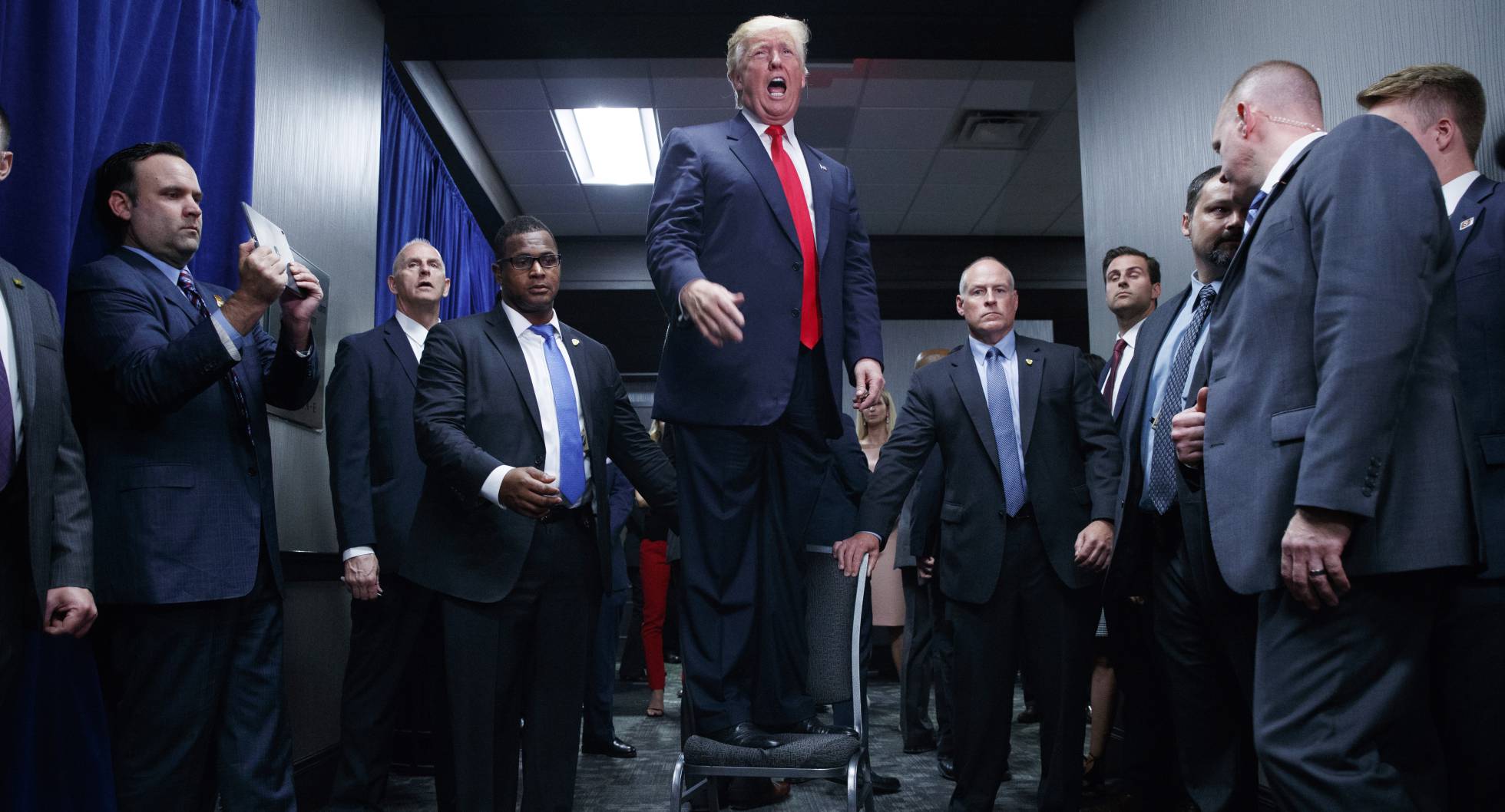
Those in positions of power simply cannot comprehend what is going on around them: they find themselves in enclosed environments that prevent them from seeing just how corrosive persistent inequality and the gap in opportunities between the rich and the poor really are.
We are living in unpredictable times, even for those best equipped to understand our society and its potential evolution: disconcerting elections, unexpected referendum results and the advancement of reactionary political forces abound. The church of the disconcerted is a broad one, made up of people from a variety of backgrounds—both from the left and the right, classic conservatives and elitist progressives, the Republican Party and the Clintons in the U.S., social democrats and Christian democrats in Europe. In times of fragmentation, the one common theme is confusion, although those on the right tend to fare better. In general, conservatives are better able to cope with confusion, unconcerned with formulating theories of society so long as things are still working. The left tends to suffer much more with this lack of clarity and takes a longer time to understand why the working class would vote for the far right. From this stems the wide-ranging debate on what the left—liberals, democrats, socialists and progressives alike—ought to do to regain some form of strategy in the midst of a situation that it neither understands nor controls. In any case, perhaps the distinction between those on the left and those on the right is less important than the distinction between those who understand the situation—Trump and Sanders—and those who do not—the Democratic Party and classic Republicans.
How can this confusion be explained? My hypothesis is that it has its origin in the fragmentation of our societies. As we have seen in the U.S., we live in societies fractured into multiple pieces: between coastal and inland cities, between the white population and ethnic minorities, between the protestant work ethic and a culture of enjoyment and abundance. At the same time, the press, both traditional and social media, have accelerated the fragmentation of cultural and political identities; social media, especially, allows for the creation of abstract and homogenous communities, enclaves of opinion in which ideological communities form self-segregated echo chambers.
One of the consequences of this is our inability to understand each other, not just in the sharing of mutual objectives, but also in a strictly mental sense: being unable to take into account what happens to other people and the reasons they are upset before denigrating them for not having a solution to these problems or for allowing themselves to be swayed by political offerings that offer no real solutions. On the one hand are those upper-middle class, older, white Americans, angry about immigration and international trade, driven by a sense of racial resentment against the America of ethnic minorities as incarnated by Barack Obama. On the other hand, we have an out of touch, more civilized minority, which distances itself from populism, not only because it has greater faith in democracy, but also because it does not suffer from the instability that plagues those hit the worst by the financial crisis and does not understand the fears of those on the lowest rung of society’s ladder. Leading elites simply have not come to terms with what is happening at the heart of our societies, likely because they find themselves shut away in their own closed off environments which prevent them from understanding others’ situations. They have no shared experiences or any shared vision with those they are supposed to lead—all that exist are comfortable, private lives on one side and invisible suffering on the other. Those in positions of power, who have turned their attention to issues affecting members of the public, have failed to understand just how corrosive persistent inequality and a lack of opportunities are proving for democracy. The multiple convulsions felt by American society—and its counterparts in other parts of the world—from the tea party to Trump, and, at the opposite end of the spectrum, movements like Occupy Wall Street and the unexpected success of Bernie Sanders, are symptoms of disaffection with a “forced modernity” on behalf of the American people. In response, the elites use their formidable means of propaganda to ram home the message that there is no other way forward.
The elites argue that many of these responses are not reasonable and do not offer adequate solutions. However, while this may be true, it does not excuse them from the responsibility of having to investigate the causes of this malaise and from considering the possibility that they themselves may be in the wrong. Simply insisting that politics is representative, that globalization offers opportunities aplenty, and that racism is bad are things that, while being true, do not deal with the issues of why people find political elitism so irritating, which aspects of globalization represent a real threat for many people, and which aspects of multiculturalism must be resolved with more than simply good intentions.
The issue is that the people are no wiser than those who represent them. The opposite of elitism, populism, solves nothing. The true problem is that we lack a shared world. Solutions only come to light through shared experiences of emotion and reason. Rather than the reasoning of those from above continually clashing with the desires of those below, those in positions of power must seek to adequately understand the problems faced by those they lead. This is vital if the angry masses are ever to feel able to trust in the intentions and abilities of those who represent them.

Leave a Reply
You must be logged in to post a comment.